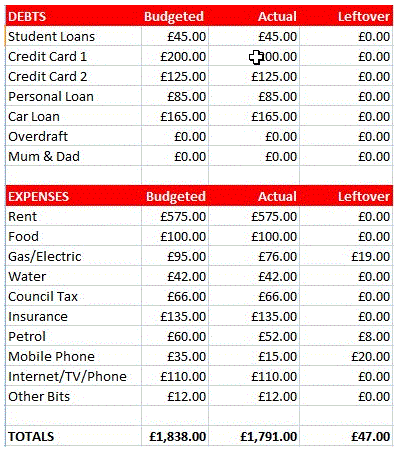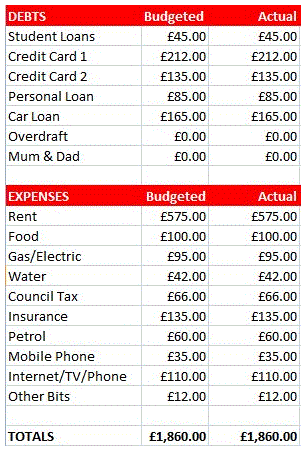Living more frugally will help you consider where and what you spend your money on. Being more frugal will help you understand the difference between wants and needs. I used to think I needed to buy lots of stuff and keep up with the lifestyle of friends and family. I’ve since turned over a new leaf and changed my financial habits.
Being frugal will make your money go further. Using a little frugal finance you’ll be able to save money and pay off your debt quicker.
Use a budget and seeing where you can save money is a good starting point. It’s too easy lose track of your cash and overspend, so fix the amount you spend each week.
To become more frugal doesn’t mean you are cheap, tight or can’t treat yourself and others, it only means you more sensible with the money you’re got. You might want to spend less on grocery bills, fast food, eating out, clothes, music, games, gadgets, music and takeout coffee.
Giving up a few luxuries will save money but you can also shop around for the best deals and discounts when you do need something.
You can save thousands by reviewing your current debt expenses, find cheaper mortgage and insurance deals and switch to interest free credit cards. We waste lots of money spending on debt interest payments so look for better deals.
Debt is so overpriced compared to the money we make on our savings, searching out better deals will save money and enable you to pay more into your debts to pay them off quicker.
Shop around for cheaper energy bills, lower mobile phone costs, switch Internet providers, cancel TV subscriptions or reduce down your current package.
A few ideas to help you save a small fortune include, taking packed lunches to work, avoid branded foods and goods that cost more, plan your meals to stop wasting food and buy in bulk if it saves money on the things you use.
Find cheaper hobbies, activities and entertainment you can do for free. Save money by becoming more healthy, cook cheaper food like frozen veg, when you can walk or cycle instead of using the car, cut down on your booze and of course stop smoking.
Access to easy credit and shopping online has made spending money easier. Not everything you buy with a few clicks is a bargain and sales exist to keep you spending on useless junk you don’t really need.
Stop using spending as a means of escape. When we buy something we want it gives us a little kick and a boost. Often we spend money to try cheer ourselves up and make us happy. Shopping gives us a high and the thrill of getting something new, something that briefly lifts up our spirits in the short term.
People shop for convenience, to alleviate boredom and get a buzz. This spending cycle of highs and lows can turn some people into shopping addicts and can impact their finances and relationships.
Are you spending too fast? Are you in danger of falling into bad heavy debt? Before you buy anything stop and think – Do I actually need this, could I go without? A quick way to curb spending is to stop acquiring stuff that don’t add value in your life. Cut back and learn to be a more frugal and savvy shopper.

